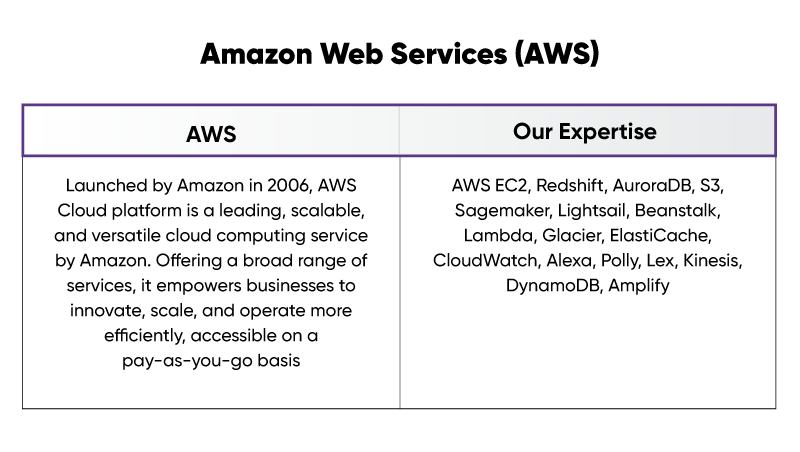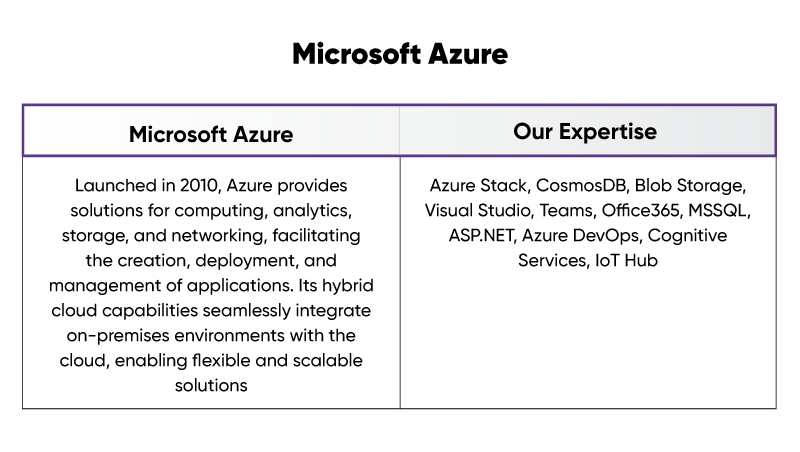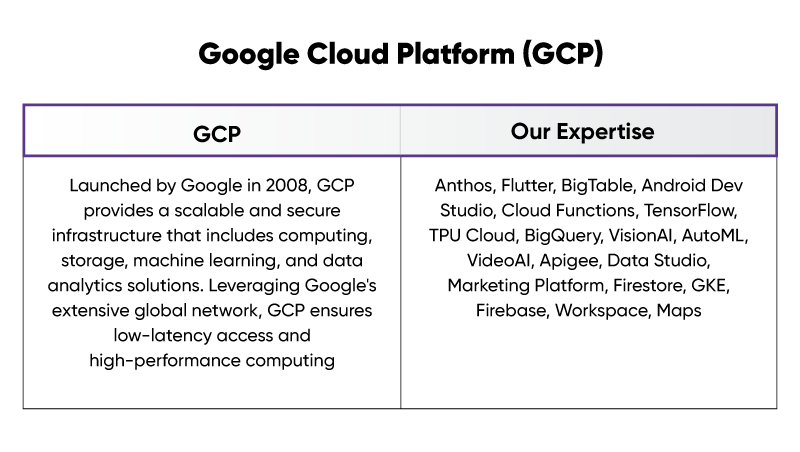
Subscribe
Be the first to know about our latest posts.
Explore Icreon’s Cloud Engineering Services
Cloud Migration: Choosing Platform Solutions for Digital Transformation
Digital Transformation is an umbrella term for different strategies and innovations that allow your business to revamp for growth and success. Cloud migration is among the top choices businesses often make on their digital transformation journey. Let's explore why and how cloud migration helps businesses of every size.
One of the major reasons that businesses choose a cloud platform is to take advantage of particular service products like database frameworks or elastic hardware solutions that are not found at other vendors.
The largest of the public cloud companies (Google, Microsoft, and AWS) are continually innovating in computer science at rates that exceed even the top academic research groups worldwide. Many complex enterprise companies seek to emulate the data center operations of the largest cloud companies to transform the advantages of remote, hyperscale architecture to the requirements of their global manufacturing, supply chain, or logistics operations.
Smaller businesses can save time and money using SaaS products on cloud platforms that provide resources they would not be able to develop independently at a low monthly subscription price. Businesses usually adopt one of the “big three” public cloud platforms to utilize IT resources for software innovation and cost savings. In contrast, multi-cloud techniques allow companies to avoid vendor lock-in and choose the optimal microservices for different verticals independently at the best prices.
An Overview of Top 3 Cloud Computing Platforms
Let’s step into the future of digital innovation with an insightful exploration of the leading cloud computing platforms, uncovering the transformative capabilities that define the technological landscape today.
E-book | Modernize Your Legacy Architecture
If you’re struggling with the challenges of legacy architecture on your digital transformation journey, here is a comprehensive guide to plan a cloud migration efficiently.
Recognizing the Need to Migrate
The use of open-source software has been increasing in enterprise corporations for the last 20 years, but the licensing of these solutions is not always free. The cost to use open-source software can also vary across public cloud service providers depending on the platform.
Understanding the differences between the service products at AWS, Microsoft Azure, and Google Cloud Platform is an important element of optimizing the cloud resource spend for any organization. IT planners need to consider some factors while migrating to the cloud. For instance,
- Cost: Carefully assess the pricing models, understand hidden fees, and choose a cloud platform that aligns with your budget, ensuring cost-effectiveness and financial sustainability for your business.
- Scalability: Prioritize platforms offering seamless scalability, allowing your business to adapt to evolving demands effortlessly. Ensure the chosen cloud solution supports the growth of your applications and services.
- Security: Evaluate the security features provided by each cloud platform, including robust access controls, data encryption, and compliance certifications. Opt for a platform that prioritizes data protection and offers comprehensive security measures.
- Data Encryption & Governance: Emphasize platforms with strong data encryption capabilities and governance tools. Ensure compliance with regulatory requirements and choose a cloud solution that prioritizes data privacy and integrity.
- Support: Consider the level of customer support and documentation each cloud provider offers while migrating to the cloud. Opt for a platform that provides reliable support, documentation, and training resources to address issues and facilitate smooth migration and ongoing operations.
Related: 8 Criteria for Selecting the Perfect Cloud Implementation Partner
Making the Right Cloud Migration Strategy
Making the right choice for a successful cloud migration strategy hinges on informed decisions. Thus, cloud implementation partner consulting is quite crucial. Why?
Well, it helps you to navigate complexities, assess business requirements, and ensure optimal alignment with the chosen cloud platform, fostering a seamless and efficient migration process. Now let’s have a broader look at it.
Most components of a web server stack are open source or licensed to run on Intel or AMD hardware in any data center environment under a subscription. This includes elements related to the operating system (Linux/Windows), programming language (PHP, Python, ASP.NET, Go, Java, R, Perl, Ruby, JavaScript), database (MySQL, PostgreSQL, MongoDB, MSSQL, MariaDB, Cassandra), and web server software (Apache, NGINX, Caddy, Tomcat).
Development teams can use artifact management services with tools like Docker to standardize runtime requirements across hardware environments. Solutions like Kubernetes compete with AWS EC2 in providing elastic scalability frameworks for web server hardware that can be automated across data centers in a vendor-agnostic manner to reduce IT costs.
DevOps utilities in the software development pipeline add support for code testing, CI/CD, version control, data security, and IaC deployment automation. Optimizing microservice support for cloud platforms with proprietary licensing and subscription use is a major component of IT management for software development teams across verticals in complex business organizations today. A technical cloud migration consulting team can help you choose the best cloud migration platform along with assistance in scaling and enhancing the same per your business requirements.
At Icreon, we offer unparalleled cloud migration services, ensuring a smooth transition from legacy system to cloud. If you’re planning a cloud migration, you can trust our team to optimize your digital transformation journey for sustainable success with Icreon’s cloud engineering services.



